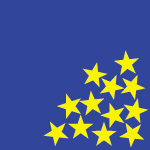27.08.2025 , in ((Politique))
, ((Pas de commentaires))
Frowin Rausis et Gaia Romeo
The European Commission has proposed letting member states drop the « connection requirement » from the « safe third country » concept in asylum cases. This seemingly technical tweak marks a major shift toward an « (un)safe fourth country » approach that some countries have repeatedly tried, and failed. Across Europe, governments are increasingly distancing themselves
...
+ En lire plus
09.04.2025 , in ((Vulnerabilization of Migrant Workers During Crises))
, ((Pas de commentaires))
Maja Lysienia
 Since the activation of the Temporary Protection Directive, persons displaced from Ukraine have been granted generous rights, including the right to be employed. However, some Member States have imposed a work permit requirement on temporary protection beneficiaries, despite concerns that such measures contribute to increasing precarity among migrant workers. Requiring
...
Since the activation of the Temporary Protection Directive, persons displaced from Ukraine have been granted generous rights, including the right to be employed. However, some Member States have imposed a work permit requirement on temporary protection beneficiaries, despite concerns that such measures contribute to increasing precarity among migrant workers. Requiring
...
+ En lire plus
12.02.2025 , in ((Rising Populist Radical Right))
, ((Pas de commentaires))
Anna Marino
 Populist radical right parties have gained support in Europe using convincing messaging based on nationalism, nativism, and promises of returning to a « better » past. They have seemed to leverage people’s frustrations with the current challenges by offering simple solutions: a stronger state, traditional values, and security from perceived threats. This
...
Populist radical right parties have gained support in Europe using convincing messaging based on nationalism, nativism, and promises of returning to a « better » past. They have seemed to leverage people’s frustrations with the current challenges by offering simple solutions: a stronger state, traditional values, and security from perceived threats. This
...
+ En lire plus
05.02.2025 , in ((Rising Populist Radical Right))
, ((Pas de commentaires))
Valentina Tonino
 The Alternative for Germany (AfD), founded in February 2013, began as a Eurosceptic movement and later expanded to challenge immigration policies. In just a decade, the AfD has gained popularity across all federal states by securing significant votes in regional, national, and European elections among all age groups. Initially dismissed
...
The Alternative for Germany (AfD), founded in February 2013, began as a Eurosceptic movement and later expanded to challenge immigration policies. In just a decade, the AfD has gained popularity across all federal states by securing significant votes in regional, national, and European elections among all age groups. Initially dismissed
...
+ En lire plus
29.01.2025 , in ((Rising Populist Radical Right))
, ((Pas de commentaires))
Lisa Johan
 The political landscape of the Netherlands underwent a drastic change in 2023. After 11 years, the longest-standing prime minister, Mark Rutte, left a power vacuum that would reshape Dutch politics. Geert Wilders, long considered a political outsider, emerged as the winner of the elections held in 2023. But how did
...
The political landscape of the Netherlands underwent a drastic change in 2023. After 11 years, the longest-standing prime minister, Mark Rutte, left a power vacuum that would reshape Dutch politics. Geert Wilders, long considered a political outsider, emerged as the winner of the elections held in 2023. But how did
...
+ En lire plus


 Since the activation of the Temporary Protection Directive, persons displaced from Ukraine have been granted generous rights, including the right to be employed. However, some Member States have imposed a work permit requirement on temporary protection beneficiaries, despite concerns that such measures contribute to increasing precarity among migrant workers. Requiring
...
Since the activation of the Temporary Protection Directive, persons displaced from Ukraine have been granted generous rights, including the right to be employed. However, some Member States have imposed a work permit requirement on temporary protection beneficiaries, despite concerns that such measures contribute to increasing precarity among migrant workers. Requiring
...
 Populist radical right parties have gained support in Europe using convincing messaging based on nationalism, nativism, and promises of returning to a « better » past. They have seemed to leverage people’s frustrations with the current challenges by offering simple solutions: a stronger state, traditional values, and security from perceived threats. This
...
Populist radical right parties have gained support in Europe using convincing messaging based on nationalism, nativism, and promises of returning to a « better » past. They have seemed to leverage people’s frustrations with the current challenges by offering simple solutions: a stronger state, traditional values, and security from perceived threats. This
...